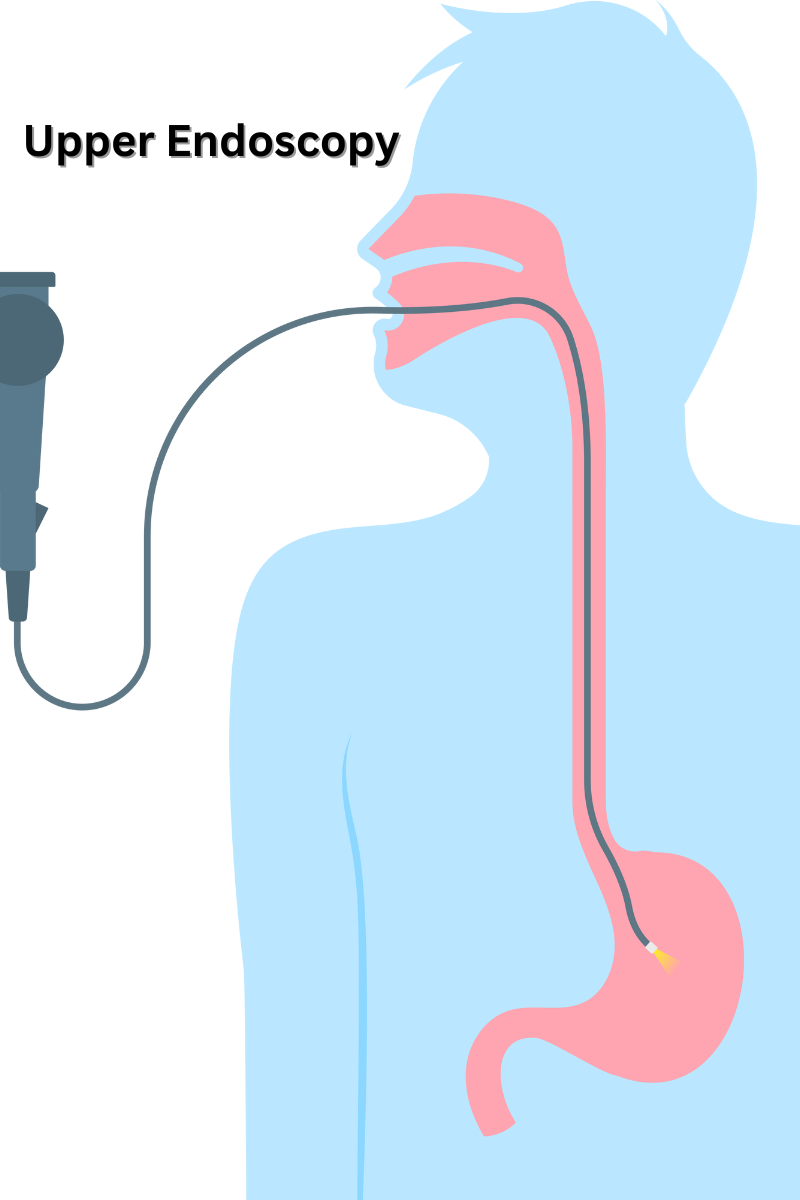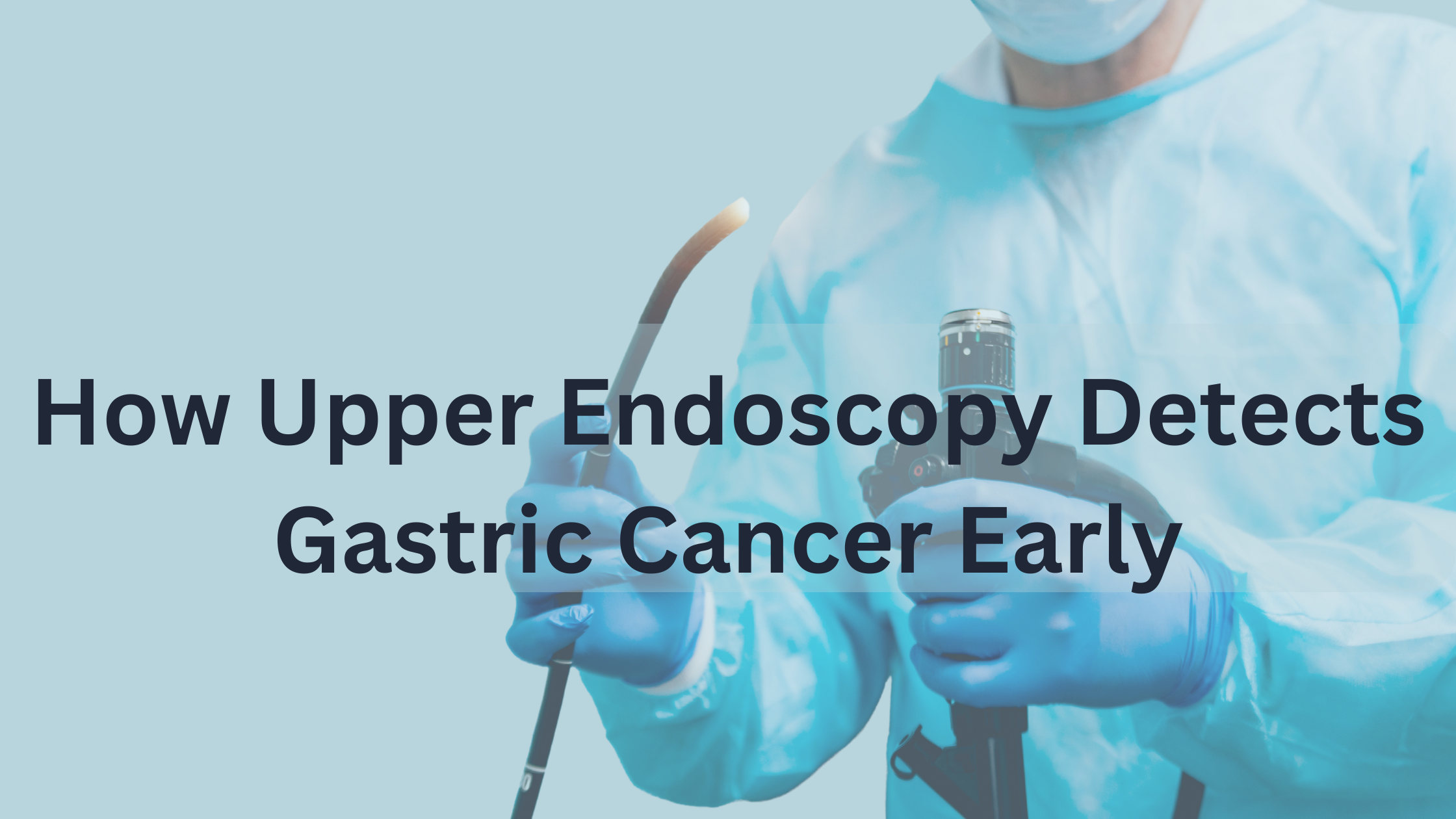Detecting gastric (stomach) cancer early can make a huge difference in treatment outcomes, and one of the most effective tools for early detection is an upper endoscopy. If you’ve been wondering what this procedure entails and how it can help identify stomach cancer at its earliest stages, you're in the right place. Let’s explore how upper endoscopy works and why it’s crucial for your digestive health.
What is Upper Endoscopy?
An upper endoscopy is a non-surgical procedure that allows doctors to examine the upper part of your digestive system. During the procedure, a thin, flexible tube (called an endoscope) is passed down your throat, giving a detailed view of your esophagus, stomach, and the first part of your small intestine.
Think of the endoscope as a mini camera, equipped with a light and a camera lens, that lets your gastroenterologist see the inner linings of your digestive tract in real time. The level of detail provided by the endoscope can help doctors spot abnormalities, such as ulcers, inflammation, or even early signs of cancer.

Why is Upper Endoscopy Important for Detecting Gastric Cancer?
Gastric cancer can develop slowly over several years. In its early stages, it often presents with vague symptoms—or sometimes no symptoms at all—that are easy to overlook or dismiss. This is why early detection can be challenging.
However, with upper endoscopy, your doctor can take a direct look at the stomach lining and identify abnormal cells or growths before they turn into something more severe. By detecting gastric cancer early, treatment options are more effective, and the chances of recovery increase dramatically.
How Does Upper Endoscopy Help in Detecting Gastric Cancer Early?
Let’s break down how upper endoscopy plays a pivotal role in the early detection of gastric cancer:
1. Visual Identification of Abnormalities
One of the most powerful aspects of an upper endoscopy is its ability to visually detect abnormalities in real time. When performing the procedure, doctors can see:
-
Ulcers or sores in the stomach lining
-
Irregular tissue growths (like polyps)
-
Swelling or inflammation
For example, in cases where gastric cancer begins as small lesions or irregular tissue, an upper endoscopy can catch these warning signs long before they progress into larger, more dangerous tumors. The endoscope’s high-resolution imaging allows the gastroenterologist to closely inspect the stomach and surrounding areas, identifying changes that may otherwise go unnoticed.
2. Biopsy Collection
During the upper endoscopy, if your doctor spots anything suspicious—such as a lesion or abnormal growth—they can perform a biopsy on the spot. A biopsy involves collecting a small tissue sample from the stomach lining for further examination under a microscope.
This step is crucial for determining whether the cells in the tissue are cancerous or benign (non-cancerous). In cases of early gastric cancer, these biopsies can reveal cancerous cells even before any outward symptoms are noticeable.
For instance, let’s say you’ve been experiencing mild stomach discomfort, but no serious issues. During the upper endoscopy, your doctor notices a small area of abnormal tissue and takes a biopsy. The lab results reveal early-stage cancer, allowing you to start treatment right away, significantly improving your chances of recovery.
3. Minimally Invasive and Low Risk
Upper endoscopy is a minimally invasive procedure, which means it involves less risk than surgery. The whole process typically takes about 15-30 minutes, and most patients experience only mild discomfort during and after the procedure.
Because of its low-risk nature, upper endoscopy can be used as a regular screening tool for individuals who are at a higher risk of developing gastric cancer. This includes people with a family history of stomach cancer, those with chronic stomach conditions (like gastritis or ulcers), or anyone experiencing unexplained gastrointestinal symptoms.
4. Targeted Treatment Plan
If your upper endoscopy results indicate abnormal tissue or early-stage cancer, this information helps your doctor create a personalized and targeted treatment plan. Early detection often allows for less invasive treatments, such as removing precancerous lesions through endoscopic resection, rather than requiring more aggressive surgery or chemotherapy.
For example, a patient diagnosed with early-stage gastric cancer may only need a minor endoscopic surgery to remove the cancerous tissue. In contrast, a patient diagnosed at a later stage may need more complex treatments, including full stomach removal or extensive chemotherapy.
Who Should Consider an Upper Endoscopy?
If you’re experiencing any of the following symptoms, an upper endoscopy might be recommended:
-
Unexplained stomach pain or discomfort
-
Difficulty swallowing
-
Nausea or vomiting
-
Unexplained weight loss
-
Persistent heartburn or acid reflux
-
Blood in your vomit or stool (which may appear as black, tarry stools)
Additionally, individuals with risk factors like a family history of gastric cancer or chronic gastrointestinal issues should discuss with their healthcare provider whether they would benefit from regular upper endoscopy screenings.
Early Detection Saves Lives
The importance of detecting gastric cancer early cannot be overstated. Unfortunately, gastric cancer often goes undiagnosed until it reaches an advanced stage, where treatment options become more limited and less effective. Upper endoscopy provides a vital window of opportunity for catching the disease before it progresses.
Real-World Example: The Power of Early Detection
Consider the story of Jane, a 45-year-old woman with chronic acid reflux. She scheduled an upper endoscopy after noticing persistent discomfort that over-the-counter medications weren’t resolving. During the procedure, her doctor found a small area of abnormal tissue in her stomach and performed a biopsy. To Jane’s surprise, the biopsy revealed early-stage gastric cancer. Thanks to early detection, her treatment involved a minor surgery to remove the cancerous tissue, and she made a full recovery.
Jane’s story is a reminder of how important it is to listen to your body and seek medical advice if something feels off.
Consult the Experts at DLDC for Peace of Mind
If you’ve been experiencing any gastrointestinal symptoms or have concerns about your digestive health, don’t wait. Early detection can be the difference between a minor procedure and a major surgery—or even life and death.
At Digestive and Liver Disease Consultants (DLDC), our team of skilled gastroenterologists specializes in using advanced diagnostic tools like upper endoscopy to detect gastric cancer and other digestive conditions early. We’re here to guide you through every step of your health journey with personalized care and cutting-edge treatments.
Have questions or need to schedule an upper endoscopy? Reach out to DLDC today for a consultation. Your health is too important to wait.






